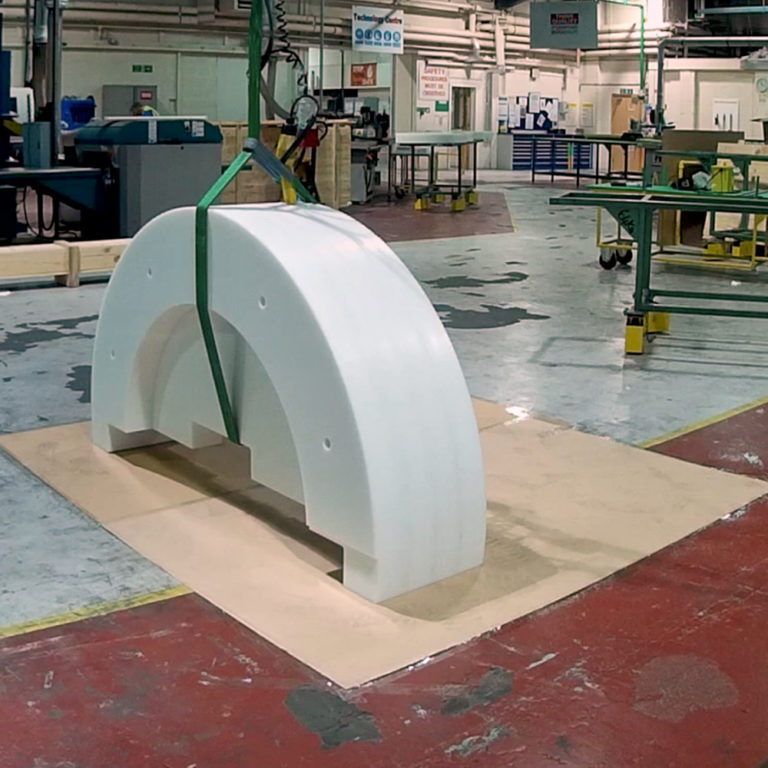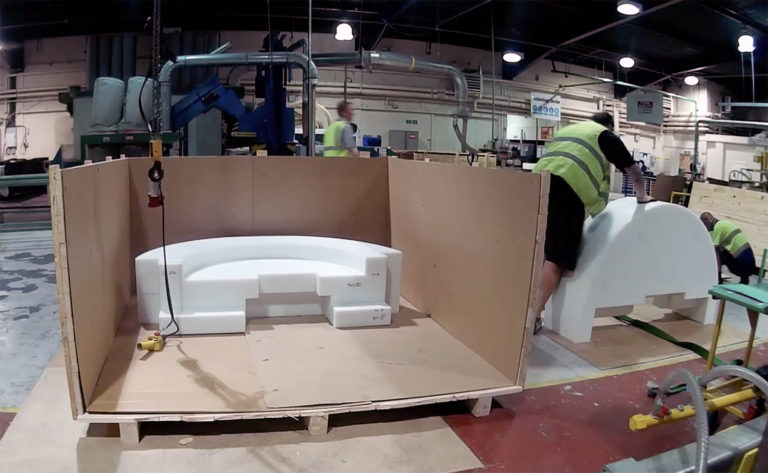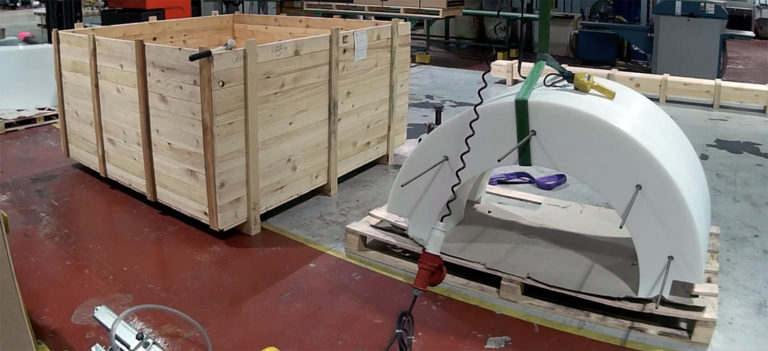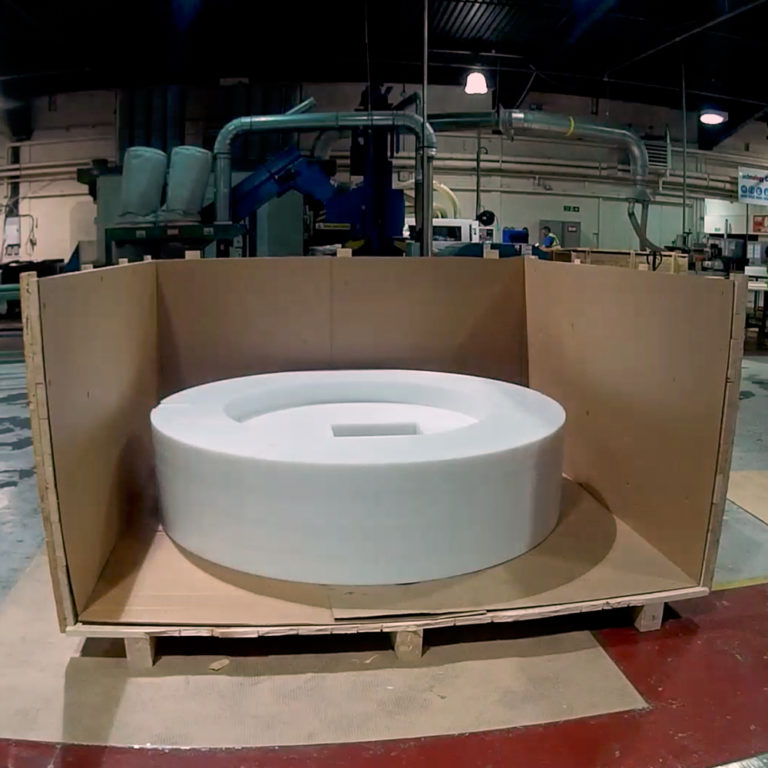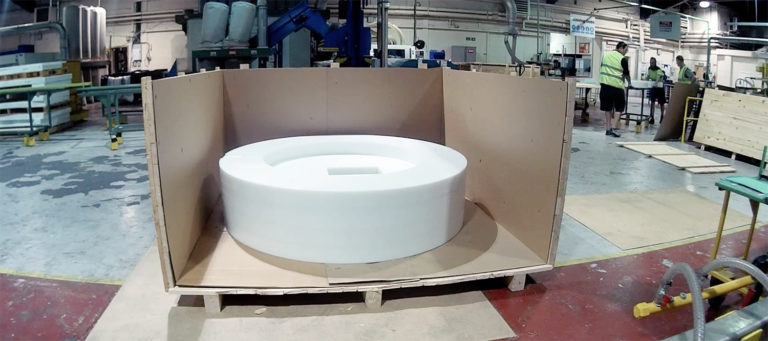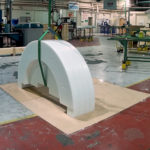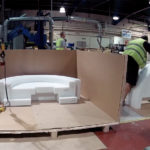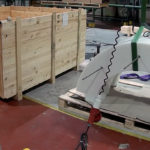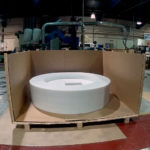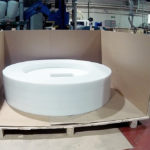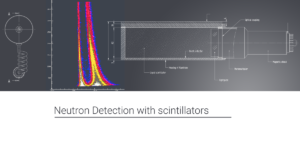|
Method |
Units |
Values |
| Properties |
|
|
|
| Colour |
- |
- |
White, Black, colours |
| Density |
ISO 1183-1 |
g/cm³ |
0.96 |
| Thermal Properties |
|
|
|
| Melting temperature (DSC, 10°C (50°F) / min) |
ISO 11357-1/-3 |
°C |
135 |
| Glass transition temperature (DSC, 20°C (68°F) / min) |
ISO 11357-1/-2 |
°C |
- |
| Thermal conductivity at 23°C (73°F) |
- |
W/(K.m) |
0.4 |
| Coefficient of linear thermal expansion (-40 to 150 °C) (-40 to 300°F) |
ASTM E-831 (TMA) |
µin./in./°F |
|
| Coefficient of linear thermal expansion (23 to 100°C) (73°F to 210°F) |
- |
µm/(m.K) |
150 |
| Heat Deflection Temperature: method A: 1.8 MPa (264 PSI) |
ISO 75-1/-2 |
°C |
44 |
| Continuous allowable service temperature in air (20.000 hrs) |
- |
°C |
80 |
| Min. service temperature |
- |
°C |
-100 |
| Flammability: UL 94 (3 mm (1/8 in.)) |
- |
- |
HB |
| Flammability: Oxygen Index |
ISO 4589-1/-2 |
% |
<20 |
| Mechanical Properties |
|
|
|
| Tensile strength |
ISO 527-1/-2 |
MPa |
28 |
| Tensile strain (elongation) at yield |
ISO 527-1/-2 |
% |
10 |
| Tensile strain (elongation) at break |
ISO 527-1/-2 |
% |
> 50 |
| Tensile modulus of elasticity |
ISO 527-1/-2 |
MPa |
1300 |
| Shear Strength |
ASTM D732 |
MPa |
|
| Compressive stress at 1 / 2 / 5 % nominal strain |
ISO 604 |
MPa |
12 / 18.5 / 26.5 |
| Compressive strength |
ASTM D695 |
PSI |
- |
| Charpy impact strength - unnotched |
ISO 179-1/1eU |
kJ/m² |
no break |
| Charpy impact strength - notched |
ISO 179-1/1eA |
kJ/m² |
105P |
| Charpy impact strength - double 14° notched |
ISO 11542-2 |
kJ/m² |
25 |
| Izod Impact notched |
ASTM D256 |
ft.lb./in |
|
| Flexural strength |
ISO 178 |
MPa |
27 |
| Flexural modulus of elasticity |
ISO 178 |
MPa |
- |
| Relative volume loss during wear test "sand-slurry" : TIVAR® 1000=100 |
ISO 15527 |
- |
350 |
| Shore hardness D |
ISO 868 |
- |
62 |
| Electric strength |
IEC 60243-1 |
kV/mm |
45 |
| Electrical Properties |
|
|
|
| Volume resistivity |
IEC 62631-3-1 |
Ohm.cm |
10E13 |
| Surface resistivity |
ANSI/ESD STM 11.11 |
Ohm/sq. |
10E12 |
| Dielectric constant at 1 MHz |
IEC 62631-2-1 |
- |
- |
| Dissipation factor at 1 MHz |
IEC 62631-2-1 |
- |
- |
| Miscellaneous |
|
|
|
| Specific Gravity |
ASTM D792 |
- |
- |
| Water absorption after 24h immersion in water of 23°C (73°F) |
ISO 62 |
% |
< 0.1 |
| Water absorption at saturation in water of 23 °C (73°F) |
- |
% |
< 0.1 |
| Wear rate |
ISO 7148-2 |
µm/km |
300 |
| Dynamic Coefficient of Friction (-) |
ISO 7148-2 |
- |
0.15-0.30 |
| Limiting PV at 100 FPM |
QTM 55007 |
ft.lbs/in².min |
- |
| Limiting PV at 0.1 / 1 m/s cylindrical sleeve bearings |
- |
Mpa.m/s |
0.08 / 0.05 |
| Note: 1 g/cm³ = 1,000 kg/m³ ; 1 MPa = 1 N/mm² ; 1 kV/mm = 1 MV/m |
|
|
|
